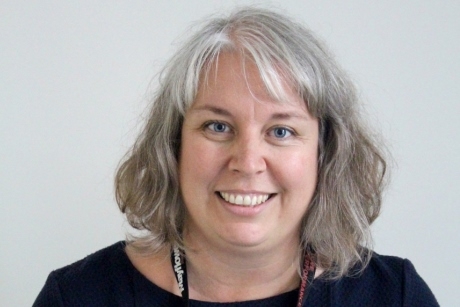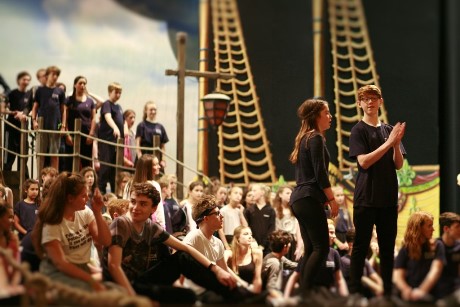Rachel Bailey speaks to Sara Scott, the newly appointed head of creative learning at the Mayflower Theatre in Southampton, about the benefits of learning outside the classroom.

Q. You’ve just taken on the role of head of creative learning at the Mayflower. What does this role involve?
A. The role of head of creative learning is new at the theatre and recognises the Mayflower’s ongoing commitment to developing and expanding work in the area of education.
As well as being part of the general management at the theatre, the role specifically focuses on leading our Engage Department, which is the community and education team.
This team works on widening the Mayflower’s connection to the community and extending the opportunities for people to participate with us. Educational activity is key to this area of work.
Q. What does the Mayflower offer in terms of education for visiting schools?
A. We offer lots of ways for our education partners to get involved, such as educational tours, workshops and projects. Most schools, colleges and universities will choose to make a day of their visit to the theatre by adding a workshop and a tour to their trip to see a show.
We design these days for individual school groups to meet specific requirements. We also offer a great many talks about the different creative careers we have at the theatre.
Some of our shows have a high educational content and for those we’ll often design a workshop that can be toured to schools before or after their visit to see the show.

Pictured: A youth theatre performance at the Mayflower Theatre.
Q. Please can you give some examples?
A. Workshops are tailored to teacher’s requirements. Skills such as singing, circus tricks, dancing or acting can be included, and all of our workshops promise to be full of fun and games whilst building confidence.
Q. What is your favourite workshop/education session that’s available at the theatre, and why?
A. I love theatre tours; we always have a hugely positive reaction to these. Many young people have never visited a theatre before or have never seen a backstage, so the joy and wonderment of that experience is infectious.
The feedback I get indicates that the teachers and leaders of these groups absolutely love the tours, too.
Q. What are your thoughts on learning outside the classroom?
A. I think learning outside the classroom is very important. The opportunities for young people to really engage in learning and to understand the prospect of life careers in the real world is extremely powerful.
I believe we should take any and all opportunities to widen the curriculum and bring learning to life in real world settings – and not just in the arts but in other sectors as well.
Q. What sort of theory informs your ideas?
A. We employ various research to inform our practice and educational theory. The overarching theme to all of this is that participation in the arts improves life chances and enhances quality of life.
Q. As a student, did you get to go on any schools trips? If so, did any of these have a lasting impact on you?
A. I did go on trips as a student and as you might expect it was my trips to the theatre and also to art galleries that had the biggest impact on me.
Q. What do you think makes for a perfect learning outside the classroom experience?
A. The best experiences are those where the teacher/organiser has confidence in both the organisation and the destination as a learning location.
We try to support this here at the Mayflower with bespoke planning. We hold Education Forums once a term; these are open to anyone planning to bring a group to the theatre in the future. These forums allow organisers to find out about what we do, from the creative and learning content through to risk assessments and parking.
02380-711800
www.mayflower.org.uk










